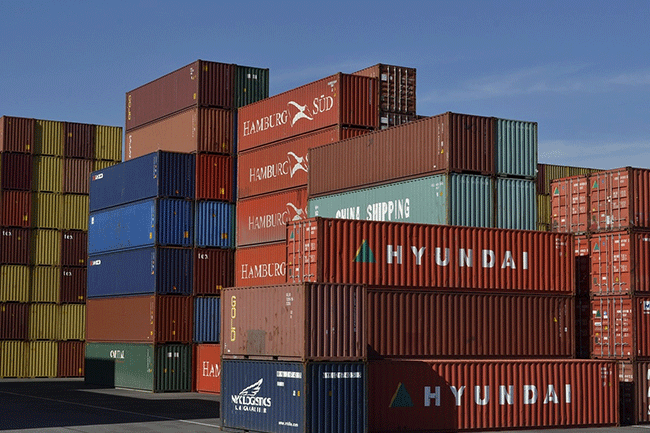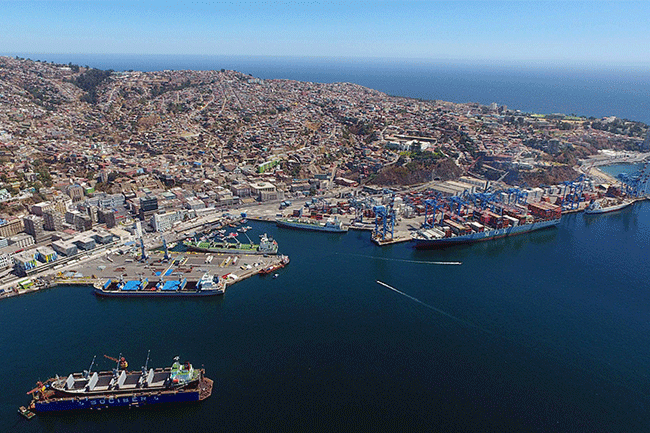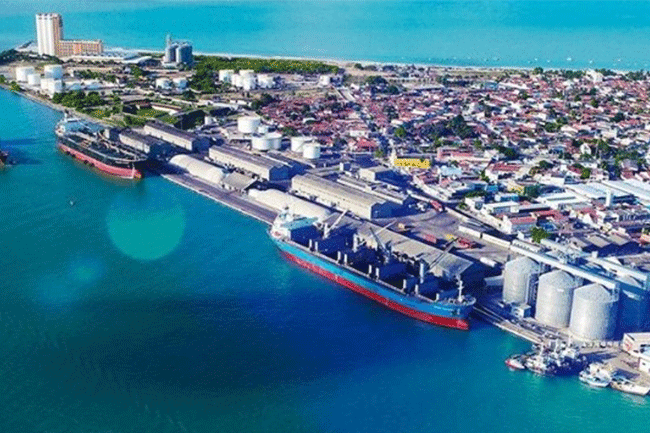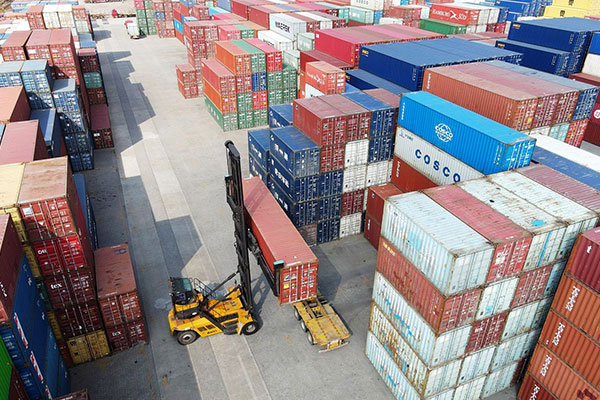- Shanghai Zhongshen International Trading Co., Ltd. – Your reliable partner with 20 years of import/export agency service expertise.

Milk chocolate under the new opportunities of Sino-German food tradeImport Agent Servicesvalue
In recent years, Sino-German bilateral trade has continued to deepen. In 2023, China's total food imports from Germany increased by 12% year-on-year. Among them, milk chocolate, with its rich taste and strict quality control, has become a popular category in the domestic high-end consumer market. However, the strict supervision of EU food exports, the high complexity of cross-border logistics, and the meticulous requirements for document compliance pose multiple challenges for import enterprises. Professionalforeign tradeThe agency service, by integrating document processing, logistics coordination, and trade compliance capabilities, has become a key support for reducing import risks and improving efficiency.
Core competence of import agents: the "precision" and "efficiency" of document processing
The single document system for the import of German milk chocolate is the "passport" for customs clearance and compliance, and it must strictly comply with the requirements of Chinese customs and CIQ (China Inspection and Quarantine). The core value of agency services is reflected in the following single document procedures:
- Basic commercial documentsReview the commercial invoices (which must specify the product specifications, unit price, and country of origin) and packing lists (which must list the net/gross weight of each box and the shipping marks), ensuring that they match the actual goods.
- Origin and Quality CertificatesHelp obtain the EUR.1 certificate officially issued by the European Union.Origin Certificate(Confirming the German origin and applying the most-favored-nation tariff), a health certificate issued by the German Federal Institute for Risk Assessment (BfR) (proving compliance with the EU food hygiene standards (EC 852/2004));
- Special Regulatory DocumentsFor chocolate containing milk ingredients, it is necessary to confirm in advance whether the exporter has completed the "Registration of Overseas Food Manufacturing Enterprises for Imported Food" (FSMA) with the General Administration of Customs of China, and assist the client in preparing the Import and Quarantine Permit for Animals and Plants (if the milk source comes from a non-epidemic area);
- Translation and FilingTranslate German documents (such as ingredient analysis reports and allergen declarations) into Chinese professionally, ensuring that the content complies with the "General Principles for the Labeling of Prepackaged Foods" (GB 7718), and complete the importation of food products.CosmeticsImport and exportBusiness registration.
The documentation experience of the agency team directly affects the efficiency of customs clearance. According to statistics, the inspection rate caused by non-compliant documents can be as high as 30%, while the pre-review of documents by professional agents can control the rejection rate to less than 5%.
Logistics Management: Professional Control from "Door-to-Door" to "Temperature-Controlled Full Supply Chain"
German milk chocolate, due to its milk fat content (usually ≥25%), has specific requirements for transportation temperature (recommended 18-22°C) and shelf life.Maritime transportIt must be completed within 45 days. The logistics plan needs to balance cost and quality.
Selection of transportation methods
For small batches (≤1000kg), it is recommended that...Air freight(Frankfurt-Shanghai/Beijing, approximately 5-7 days), with temperature-controlled cargo holds throughout the journey to ensure quality; for large quantities (≥2,000 kg), preferential use of full container loads (FCL) is recommended, employing 40-foot refrigerated containers (Reefer) set at a temperature of 18°C, and equipped with temperature recorders (data must be submitted to customs along with shipping documents). It is particularly important to note that mixed container shipments (LCL) are prone to temperature fluctuations during multiple transfers, and are not recommended unless absolutely necessary.
Pre-coordination before customs clearance
The agent team needs to complete the pre-classification of the HS code 30 days in advance (milk chocolate is usually classified as HS 1806.3200, with a most-favored-nation tariff of 8% and a value-added tax of 13%), confirm whether it involves anti-dumping (currently, there are no anti-dumping measures against China for chocolate in the European Union), and communicate with the customs of the destination port to prioritize inspections and reduce the risk of goods being detained in port.
The cold chain connection in end-of-line distribution
After arriving at the port, the agent can coordinate with domestic cold chain logistics companies that have GSP certification to use insulated vehicles (with a temperature monitoring range of 15-25°C) to complete the last-mile delivery from "port-warehouse-distributor", ensuring that the shelf life of the products is not compromised.
VTB's transit business with RussiaConvert foreign exchange into RMBAdvantages
Some enterprises reduce the cost of direct flights to Europe by transshipping through Russia, at which point the efficiency of foreign exchange settlement becomes crucial. Relying on its long-term cooperation with the Russian Foreign Trade Bank (VTB), the agency service offers two major advantages:
- Exchange Rate Lock - inThrough VTB's spot/forward foreign exchange settlement tools, we can lock in the RMB-Ruble-Euro exchange rate and avoid exchange rate losses (which can reduce the average exchange cost by 2-3%);
- Cross-Border Payment TimelinessVTB has established direct SWIFT connection channels with major Chinese banks (such as ICBC and BOC), enabling cross-border payments to be completed in just 1-2 working days (compared to the usual 3-5 days), thereby enhancing the trust of suppliers.
Customer Notice: Certification Boundaries and Risk Alerts
It should be noted that our company does not directly provide product certification services, but we can offer the following compliance guidelines:
- Mandatory CertificationsImported milk chocolate needs to complete the "Importer Registration for Imported Food" (operated on the General Administration of Customs platform). If it involves special formulas (such as adding probiotics), an additional application for "Health Food Registration (National Food and Health Product Code)" is required.
- Recommendatory certificationThe EU organic certification (EC 834/2007) and fair trade certification (FLO) can increase the product's premium, but exporters or customers need to apply to the certification agencies themselves.
- Since January 2025, Russia has made it mandatory to register for EPR (Extended Producer Responsibility)In 2024, the European Union plans to implement the "New Food Regulation" (EU Regulation 2015/2283), which imposes stricter limits on the content of cocoa butter substitutes (such as cocoa butter equivalents) in chocolate. Our agency can assist in interpreting the new regulations, but certification must still be completed by the client independently.
Full-Process Agency Service: Closed-Loop Management from Consultation to Feedback
Based on industry practices, the standard agency process can be broken down into nine major stages to ensure that each node is manageable:
- Client ConsultationDefine the product ingredients (country of origin of milk, cocoa content), import volume (full container/LCL), destination ports (Shanghai/Shenzhen/Qingdao), and customs clearance time requirements;
- Negotiation and Contract SigningReview the trade terms (FOB/CIF terms), payment methods (T/T 30% prepayment + 70% payment upon arrival, sight L/C), and agree on the division of responsibilities for non-conformance of documents and cargo damage;
- Orders & PaymentPay for the goods through an agent's account (to circumvent the individual payment quota), and strictly review the consistency of the documents and the invoices under the L/C terms;
- Production supervisionCommission SGS or BV to conduct on-site installation inspections of the German factory, verify the product batch numbers, shelf life (must be ≥12 months), and packaging compliance (moistureproof/shockproof);
- Logistics ManagementAfter booking the shipping space, we will provide the ETD (Estimated Time of Departure) and ETA (Estimated Time of Arrival) simultaneously, and purchase marine all-risk insurance (covering theft and leakage risks during transportation).
- Customs CompliancePre-enter the customs declaration form, pay customs duties (we can assist in applying for summary taxation to alleviate financial pressure), and cooperate with customs inspection (such as sending samples for inspection, with testing items including microorganisms and heavy metals);
- Delivery and Distribution1: Complete the container pickup with the "Inspection and Quarantine Certificate for Imported Goods", and coordinate with the cold chain truck to deliver the goods to the client's designated warehouse (RDC distribution supported); 2: Complete the container pickup with the "Inspection and Quarantine Certificate for Imported Goods", and arrange for the cold chain truck to deliver the goods to the client's designated warehouse (RDC distribution supported); 3: Complete the container pickup with the "Inspection and Quarantine Certificate for Imported Goods", and arrange for the cold chain truck to deliver the goods to the client's designated warehouse (RDC distribution supported); 4: Complete the container pickup with the "Inspection and Quarantine Certificate for Imported Goods", and arrange for the cold chain truck to deliver the goods to the client's designated warehouse (RDC distribution supported); 5: Complete the container pickup with the "Inspection and Quarantine Certificate for Imported Goods", and arrange for the cold chain truck to deliver the goods to the client's designated warehouse (RDC distribution supported); 6: Complete the container pickup with the "Inspection and Quarantine Certificate for Imported Goods", and arrange for the cold chain truck to deliver the goods to the client's designated warehouse (RDC distribution supported); 7: Complete the container pickup with the "Inspection and Quarantine Certificate for Imported Goods", and arrange for the cold chain truck to deliver the goods to the client's designated warehouse (RDC distribution supported); 8: Complete the container pickup with the "Inspection and Quarantine Certificate for Imported Goods", and arrange for the cold chain truck to deliver the goods to the client's designated warehouse (RDC distribution supported); 9: Complete the container pickup with the "Inspection and Quarantine Certificate for Imported Goods", and arrange for the cold chain truck to deliver the goods to the client's designated warehouse (RDC distribution supported); 10: Complete the container pickup with the "Inspection and Quarantine Certificate for Imported Goods", and arrange for the cold chain truck to deliver the goods to the client's designated warehouse (RDC distribution supported); 11: Complete the container pickup with the "Inspection and Quarantine Certificate for Imported Goods", and arrange for the cold chain truck to deliver the goods to the client's designated warehouse (RDC distribution supported); 12: Complete the container pickup with the "Inspection and Quarantine Certificate for Imported Goods", and arrange for the cold chain truck to deliver the goods to the client's designated warehouse (RDC distribution supported); 13: Complete the container pickup with the "Inspection and Quarantine Certificate for Imported Goods", and arrange for the cold chain truck to deliver the goods to the client's designated warehouse (RDC distribution supported); 14: Complete the container pickup with the "Inspection and Quarantine Certificate for Imported Goods", and arrange for the cold chain truck to deliver the goods to the client's designated warehouse (RDC distribution supported); 15: Complete the container pickup with the "Inspection and Quarantine Certificate for Imported Goods", and arrange for the cold chain truck to deliver the goods to the client's designated warehouse (RDC distribution supported); 16: Complete the container pickup with the "Inspection and Quarantine Certificate for Imported Goods", and arrange for the cold chain truck to deliver the goods to the client's designated warehouse (RDC distribution supported); 17: Complete the container pickup with the "Inspection and Quarantine Certificate for Imported Goods", and arrange for the cold chain truck to deliver the goods to the client's designated warehouse (RDC distribution supported); 18: Complete the container pickup with the "Inspection and Quarantine Certificate for Imported Goods", and arrange for the cold chain truck to deliver the goods to the client's designated warehouse (RDC distribution supported); 19: Complete the container pickup with the "Inspection and Quarantine Certificate for Imported Goods", and arrange for the cold chain truck to deliver the goods to the client's designated warehouse (RDC distribution supported); 20: Complete the container pickup with the "Inspection and Quarantine Certificate for Imported Goods", and arrange for the cold chain truck to deliver the goods to the client's designated warehouse (RDC distribution supported); 21: Complete the container pickup with the "Inspection and Quarantine Certificate for Imported Goods", and arrange for the cold chain truck to deliver the goods to the client's designated warehouse (RDC distribution supported); 22: Complete the container pickup with the "Inspection and Quarantine Certificate for Imported Goods", and arrange for the cold chain truck to deliver the goods to the client's designated warehouse (RDC distribution supported); 23: Complete the container pickup with the "Inspection and Quarantine Certificate for Imported Goods", and arrange for the cold chain truck to deliver the goods to the client's designated warehouse (RDC distribution supported); 24: Complete the container pickup with the "Inspection and Quarantine Certificate for Imported Goods", and arrange for the cold chain truck to deliver the goods to the client's designated warehouse (RDC distribution supported); 25: Complete the container pickup with the "Inspection and Quarantine Certificate for Imported Goods", and arrange for the cold chain truck to deliver the goods to the client's designated warehouse (RDC distribution supported); 26: Complete the container pickup with the "Inspection and Quarantine Certificate for Imported Goods", and arrange for the cold chain truck to deliver the goods to the client's designated warehouse (RDC distribution supported); 27: Complete the container pickup with the "Inspection and Quarantine Certificate for Imported Goods", and arrange for the cold chain truck to deliver the goods to the client's designated warehouse (RDC distribution supported); 28: Complete the container pickup with the "Inspection and Quarantine Certificate for Imported Goods", and arrange for the cold chain truck to deliver the goods to the client's designated warehouse (RDC distribution supported); 29: Complete the container pickup with the "Inspection and Quarantine Certificate for Imported Goods", and arrange for the cold chain truck to deliver the goods to the client's designated warehouse (RDC distribution supported); 30: Complete the container pickup with the "Inspection and Quarantine Certificate for Imported Goods", and arrange for the cold chain truck to deliver the goods to the client's designated warehouse (RDC distribution supported); 31: Complete the container pickup with the "Inspection and Quarantine Certificate for Imported Goods", and arrange for the cold chain truck to deliver the goods to the client's designated warehouse (RDC distribution supported); 32: Complete the container pickup with the "Inspection and Quarantine Certificate for Imported Goods", and arrange for the cold chain truck to deliver the goods to the client's designated warehouse (RDC distribution supported); 33: Complete the container pickup with the "Inspection and Quarantine Certificate for Imported Goods", and arrange for the cold chain truck to deliver the goods to the client's designated warehouse (RDC distribution supported); 34: Complete the container pickup with the "Inspection and Quarantine Certificate for Imported Goods", and arrange for the cold chain truck to deliver the goods to the client's designated warehouse (RDC distribution supported); 35: Complete the container pickup with the "Inspection and Quarantine Certificate for Imported Goods", and arrange for the cold chain truck to deliver the goods to the client's designated warehouse (RDC distribution supported); 36: Complete the container pickup with the "Inspection and Quarantine Certificate for Imported Goods", and arrange for the cold chain truck to deliver the goods to the client's designated warehouse (RDC distribution supported); 37: Complete the container pickup with the "Inspection and Quarantine Certificate for Imported Goods", and arrange for the cold chain truck to deliver the goods to the client's designated warehouse (RDC distribution supported); 38: Complete the container pickup with the "Inspection and Quarantine Certificate for Imported Goods", and arrange for the cold chain truck to deliver the goods to the client's designated warehouse (RDC distribution supported); 39: Complete the container pickup with the "Inspection and Quarantine Certificate for Imported Goods", and arrange for the cold chain truck to deliver the goods to the client's designated warehouse (RDC distribution supported); 40: Complete the container pickup with the "Inspection and Quarantine Certificate for Imported Goods", and arrange for the cold chain truck to deliver the goods to the client's designated warehouse (RDC distribution supported); 41: Complete the container pickup
- Quality AssuranceWithin 7 days after arrival at the port, complete the third-party reinspection (e.g., Huace Inspection), and initiate insurance claims or file claims against suppliers for cargo damage (e.g., melting, breakage).
- Summary FeedbackProvide the "Import Execution Report" (including cost breakdown, time efficiency analysis, and problem-solving records), and settle the agency fees and advance payments.
Conclusion: Professional agents are the "efficiency engine" for the import of milk chocolate.
The complexity of importing German milk chocolate essentially tests the professional competence of the entire trade chain. From document review to cold-chain logistics, from compliance and risk control to foreign exchange optimization, professional agents help enterprises avoid the "cost of trial and error" by integrating resources and experience, reducing the import cycle from the industry average of 60 days to within 45 days, and lowering overall costs by 8-12%. Choosing agency services is not just about delegating operations, but also injecting "certainty" into the import business - this is precisely what enterprises need most as the uncertainty of international trade intensifies, constituting their core competitiveness in the current environment.
? 2025. All Rights Reserved.










